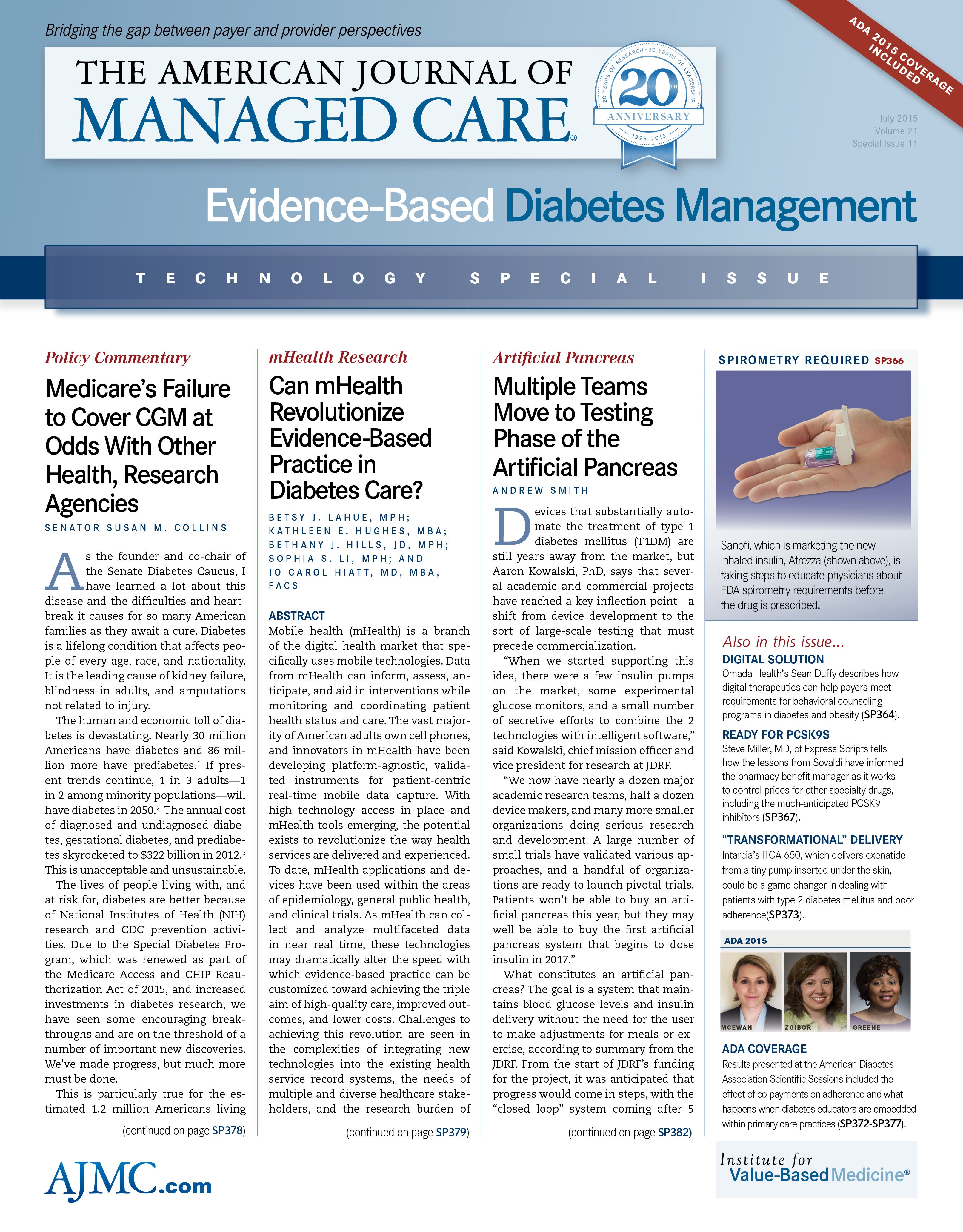- Center on Health Equity & Access
- Clinical
- Health Care Cost
- Health Care Delivery
- Insurance
- Policy
- Technology
- Value-Based Care
FDA Approves Software Update for Dexcom Pediatric CGM System
The FDA has approved updat- ed, more accurate software for the Dexcom G4 Platinum pediatric continuous glucose monitoring (CGM) system. The approval, granted May 22, 2015, reflects soft-ware changes to improve accuracy for detecting glucose levels of 70 mg/dL or lower. According to an FDA notice, the approval lets Dexcom remove warnings from the device receiver and labeling.1
Dexcom’s G4 Platinum system for adults, first approved in 2012, offered improved accuracy and other advances from its earlier CGM technology.2 The May software update for the pediatric model, while not a major technological advance, represents the ongoing fine-tuning of devices for those with diabetes who use insulin to keep blood glucose levels in check. The pediatric version is designed for children aged 2 to 17 years; almost all potential users have type 1 diabetes mellitus (T1DM).
The Dexcom pediatric device allows patients (and their parents) to monitor blood glucose levels more easily than with finger sticks. While finger stick tests are still part of T1DM care, they offer only a snapshot in time, not a view of how blood glucose levels have changed over the course of a day.
Dexcom is among several competitors at work on an “artificial pancreas,” which would combine CGM technology, an insulin pump, and improved sensors to sharply reduce a patient’s need to monitor glucose levels throughout the day, including during exercise. Until this technology arrives, pediatric patients in particular require monitoring for hypoglycemia events. References
1. Dexcom G4 PLATINUM (pediatric) continuous glucose monitoring system-P120005/S031. FDA website. http://www.fda.gov/MedicalDevices/ ProductsandMedicalProcedures/DeviceApprov-alsandClearances/Recently-ApprovedDevices/ ucm450818.htm. Published June 11, 2015. Ac-cessed July 7, 2015.
2. Tenderich A. News flash: Dexcom’s next-gen “platinum” CGM approved by FDA. DiabetesMine website. http://www.healthline.com/diabetes-mine/newsflash-dexcoms-next-gen-platinum-cgm-approved-by-fda#3. Published October 8, 2012. Accessed July 6, 2015.

Quality of Life: The Pending Outcome in Idiopathic Pulmonary Fibrosis
February 6th 2026Because evidence gaps in idiopathic pulmonary fibrosis research hinder demonstration of antifibrotic therapies’ impact on patient quality of life (QOL), integrating validated health-related QOL measures into trials is urgently needed.
Read More
Exploring Pharmaceutical Innovations, Trust, and Access With CVS Health's CMO
July 11th 2024On this episode of Managed Care Cast, we're talking with the chief medical officer of CVS Health about recent pharmaceutical innovations, patient-provider relationships, and strategies to reduce drug costs.
Listen
Building Trust: Public Priorities for Health Care AI Labeling
January 27th 2026A Michigan-based deliberative study found strong public support for patient-informed artificial intelligence (AI) labeling in health care, emphasizing transparency, privacy, equity, and safety to build trust.
Read More

